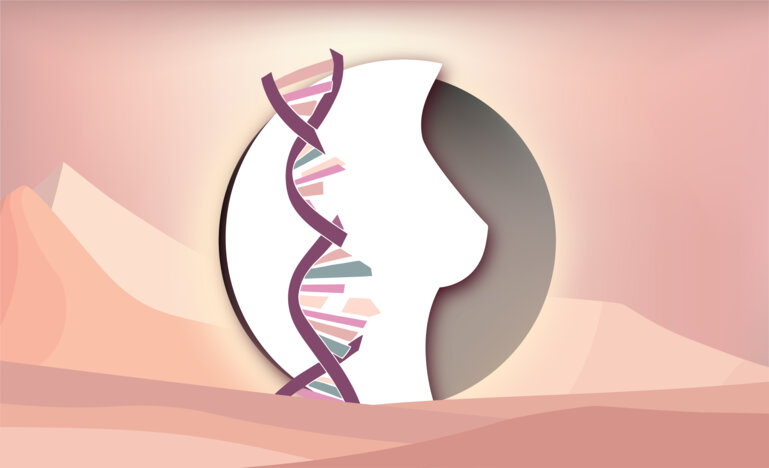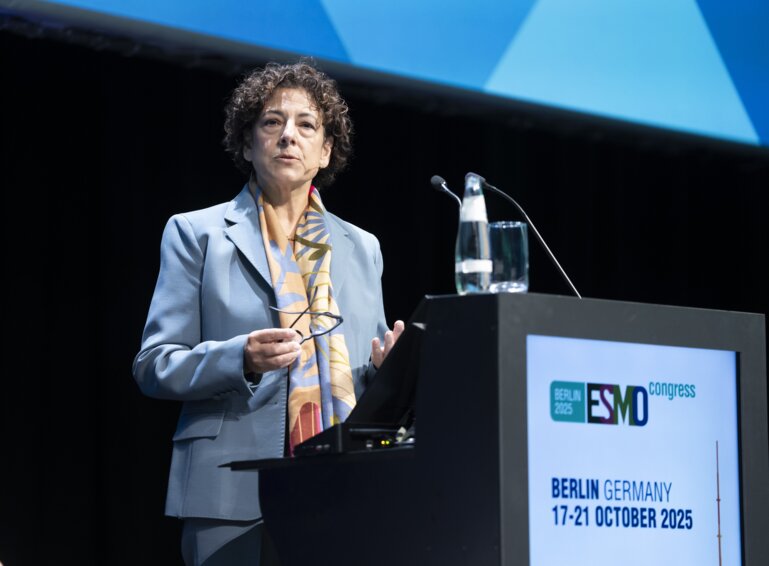New data show that it does not increase the risk of breast cancer recurrence or development of secondary breast cancer in women, nor does it carry any health risks for the child
Fertility preservation and pregnancy planning is a priority among young women diagnosed with early-stage breast cancer (Breast. 2017;35:203–217). Qualitative research and cross-sectional studies highlight that beyond physical, social and psychological barriers, patients are confronted with considerable misinformation regarding the safety and feasibility of breastfeeding after breast cancer, being often insufficiently encouraged or supported by healthcare professionals during their care journey. Breastfeeding is not possible in women who have had bilateral mastectomy. However, those who have had breast conserving surgery are able to breastfeed, albeit with reduced production of milk: women can breastfeed with the contralateral breast, and one breast is sufficient to fully breastfeed a newborn, even twins.
Data showing that pregnancy after breast cancer does not have adverse outcomes for either the woman or child are mixed (J Clin Oncol. 2021;39:3293–3305), and evidence regarding the feasibility, safety, patterns and outcomes of breastfeeding in women with previous breast cancer is limited. Available data are encouraging, but they are derived from smaller sample-size retrospective studies and cross-sectional surveys.
A secondary analysis of the single-arm, prospective, international Pregnancy Outcome and Safety of Interrupting Therapy for Women with Endocrine Responsive Breast Cancer (POSITIVE) study evaluated the impact of breastfeeding on breast cancer outcomes, giving some insights to increase our understanding of breastfeeding in these patients. The POSITIVE trial has already shown that a population of women with hormone receptor-positive early breast cancer who completed at least 18 months of endocrine therapy could safely temporarily interrupt therapy for up to 2 years to become pregnant, with no increase in short-term risk of breast cancer events (N Engl J Med. 2023;388:1645–1656).
The new data from the POSITIVE study presented at the ESMO Congress 2024 (Barcelona, 13–17 September) are very encouraging as they show that 63% of patients who had a live birth and did not have bilateral mastectomy breastfed, with 37% breastfeeding for at least 6 months (Abstract 1814O). Women who were more likely to breastfeed were older (aged ≥35 years), with no prior children and had undergone breast-conserving surgery. Breastfeeding did not impact the breast cancer-free interval at 2 years, although a longer follow-up is still needed. There were no signals that breastfeeding would be detrimental and compromise the outcome of breast cancer, and no reasons that breastfeeding should be contraindicated.
Also presented at the Congress were encouraging results on the feasibility and safety of breastfeeding in young women who did not undergo bilateral mastectomy and were enrolled in an international retrospective cohort study of women aged ≤40 years who harboured a BRCA mutation and had a diagnosis of stage I–III invasive breast cancer (Abstract 1815O). The strengths of this study are related to its specificity in patients with BRCA mutation-positive disease, its multicentric nature and long follow-up (7 years). Of the 4,904 patients in the study, 659 had a pregnancy after breast cancer diagnosis and 474 delivered a child. After delivery, 23% of patients breastfed for a median 5 months, 14% did not breastfeed and just under half (47.5%) underwent bilateral risk-reducing mastectomy before delivery and so were unable to breastfeed. Those who breastfed were more frequently without children at the time of their breast cancer diagnosis compared to those who did not breastfeed. There was no impact of breastfeeding on locoregional recurrence or second primary breast cancer events during follow-up. However, this was a retrospective study therefore should be interpreted with caution. As the study was not pre-planned, the quality of the data makes assessment a bit more challenging. It is possible that detailed breastfeeding data in medical records were available only for those who had healthcare providers motivated and sensitive to the topic.
As an increasing number of young women survive breast cancer (Oncol Ther. 2023;11:199–229), pregnancy and breastfeeding have become critical areas that oncologists must address to provide comprehensive survivorship care. The studies presented at the Congress significantly enhance the quality of available data and will be valuable in guiding patient-centred decision-making in clinical settings. We should empower both patients and providers with the feasibility and safety data from these studies to encourage early discussions in the care pathway. Ideally, women should receive counselling both before (starting at diagnosis) and after pregnancy. For young women with BRCA mutation-positive disease, the option of delaying prophylactic bilateral mastectomy for those who wish to become pregnant and breastfeed should be part of the shared decision-making process. Moreover, beyond communication between patients and providers, certified lactation consultants are essential for addressing any breastfeeding challenges and ensuring successful breastfeeding. We should advocate for the availability of this service for all our patients.
Currently, there are solid data associating breastfeeding with health benefits for the mother and child (Medicine (Baltimore). 2024;103:e37695); however, how it impacts on the quality of life specifically of women with a history of breast cancer has not been explored. I think breastfeeding could potentially serve as a positive healing experience for women after breast cancer, helping to restore a sense of biological normality for the breast, and helping women to reintegrate into social and family life, and strengthen the bond with their child but this should be properly evaluated in future prospective studies.
Programme details
Peccatori FA, et al. Breastfeeding in women with hormone receptor-positive breast cancer who conceived after temporary interruption of endocrine therapy: Results from the POSITIVE trial. ESMO Congress 2024, Abstract 1814O
Proffered Paper Session – Supportive and palliative care, 14.09.2024, h. 14:45 – 16:25, Pamplona Auditorium – Hall 3
Blondeaux E, et al. Breastfeeding after breast cancer in young BRCA carriers: Results from an international cohort study. ESMO Congress 2024, Abstract 1815O
Proffered Paper Session – Supportive and palliative care, 14.09.2024, h. 14:45 – 16:25, Pamplona Auditorium – Hall 3







